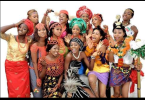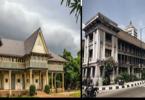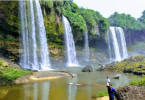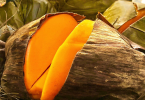Nigeria and its people are never short of beautiful moments to celebrate. There are a diverse package of Nigerian festivals celebrated on an annual basis. Even our citizens in the diaspora yearn to partake of the thrills of these Nigerian festivals. And trust us when we say Nigerians are great culinary and social hosts.
Wikipedia classifies the different and colorful celebrations of culture and life in Nigeria into 5 festival categories. We have Book festivals, Music festivals, Film festivals, Cultural festivals, and other festivals of worthy note. Our focus here is on the rich cultural festivals which take place annually. There are at least 52 of them listed on the Wikipedia site.
These exciting Nigerian festivals of culture remind us of who we are and our treasured cultural values. They depict how our various cultures have shaped our lives as a nation. They are also an opportunity for the homecoming of sons and daughters of the native communities living in the diaspora. Many of these Nigerian festivals of culture are celebrated with such pomp that they have become huge international tourist attractions. And of course they are revenue drivers for the nation.
10 Notable Nigerian Festivals of Culture You Should not Miss
Calabar Carnival
The Calabar Carnival is an annual Christmas event held every December in Calabar, Cross River State. It was commissioned by ex-governor Donald Duke who was in office between 1999 and 2007. Donald Duke championed the promotion of tourism in Cross River State. Thus he helped to build the carvival into the largest carvial event in Africa. The originally one month long event is now being celebrated for two weeks. Exciting competitions take place for which large cash prizes are won.
Eyo Festival
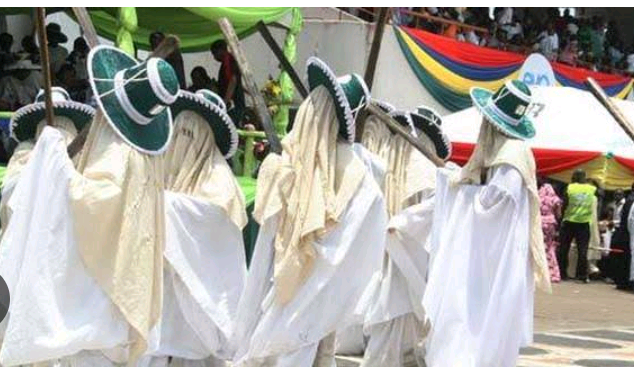

The Eyo festival is a glamorous cultural masquerade display held exclusively in Lagos Island of Nigeria. The name ‘ Eyo’ itself is the name of the white-clad dancing masquerades. These masquerades represent the spirits of the dead.
The Eyo festival originated out of a traditional rite of passage held for a dead king to accompany his soul into the underworld. At the same time, the procession also welcomes the new king. It may also be held to honor a prominent chief or well-known personality.
To facilitate the dance parade, the main road from Carter bridge to Tinubu Square is closed to traffic to make way for the procession. The masquerades move from Idumota to Iga Iduganran palace to go and pay homage to the Oba of Lagos.
There are five Eyo groups involved in the procession, which starts on a Sunday. The senior Eyo group leads on that Sunday with its own procession, followed by each of the others from Monday to Thursday. By the following Saturday, the festival proper would be held.
Carniriv: Port Harcourt Carnival
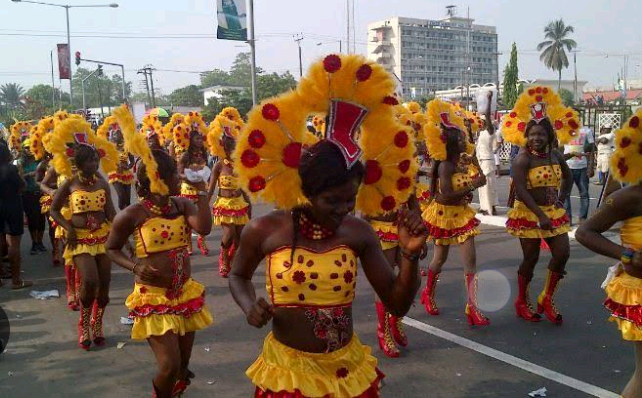

Carniriv is a 7-day celebration held some weeks before Christmas. It is a grand combination of both a cultural festival and a Caribbean-style carnival that has gained vast international recognition.
A cultural procession consisting of six bands march through a predetermined route on the streets of Port Harcourt. Also, each of the 23 local government areas of Rivers State present a contingent of dancers and performers as part of the cultural parade. There is also the Children’s Carnival event, where children are allowed to hold their own mini-procession and have plenty of fun. Lately, the event organizers have extended invitations to foreign dance troupes from such nations as South Africa and Malaysia.
New Yam Festivals
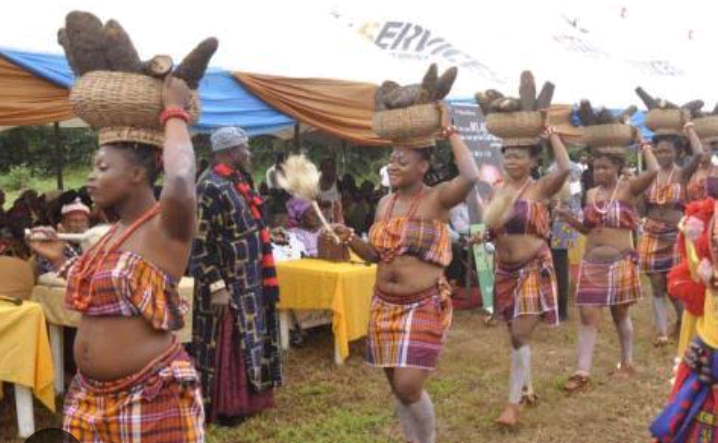

The New Yam festival (or Ike ji) is held annually around the end of August across all of Igbo land. It marks the end of the rainy season. New Yam festivals are also widely celebrated across the whole of West Africa and in other African regions. It marks the time when yam is freshly harvested, and the people are ready for the new planting season. Yam being an important food crop of the Igbos, is always the last to be harvested.
In fact, the new yam is so important to the Igbos that during the festival, all old yams are brought out and prepared into dishes. Or otherwise the old yam stock must be discarded on the eve of the event.
Masquerade displays and cultural dances by different groups of men and women, and fashion parades, are featured. There are many other entertainment events as well. The high point of the event is when the Igwe (king) or eldest man of the community performs certain rites to bless the event and the people. Depending on the host community, the New Yam festival may last from a day to as long as a whole week.
Imo International Carnival
The Imo Carnival is a unity carnival set to host all Imo state indigenes both in Nigeria and abroad. Tourists and the international community are also fully welcome to the grand event. It takes place every year from the 16th to 31st of December. The first edition of the event took place in 2011.
The Imo carnival brings together several traditional festivals which include masquerade displays, Ozuruimo festival, Ahiajoku festival, and other celebrations. Traditional wrestling and dances, musical performances and a street parade in costumes are also featured in the international event.
Argungu Fishing Festival
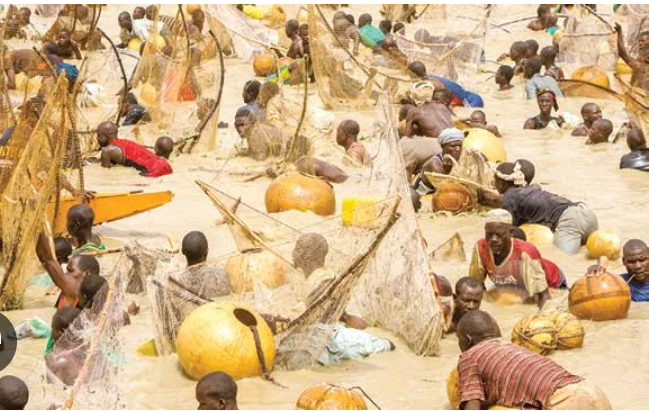

Argungu is an important river-side town in Kebbi state. The entire area extending between Kebbi and Niger states, is composed of fertile river plains. Thus farming and fishing is the mainstay of the indigenes.
Every year, the community celebrates the Argungu International Fishing festival for 4 days between February and March. This marks the start of the fishing season. To conserve the fish population, contestants are only allowed to use native fishing implements and their bare hands to catch fish. This is done on the final day of the competition. Preceding this peak event are fun activities which include swimming and wrestling contests, canoe races, and musical performances. An award of up to $7500 in cash prize will be given to the contestant with the largest fish overall.
The fishing festival was initiated by the Sokoto Caliphate in 1934 in celebration of a truce between Sokoto Caliphate and the Kebbi kingdom. This followed a prolonged period of wars between the two lands that lasted over a century.
Ofala Festival
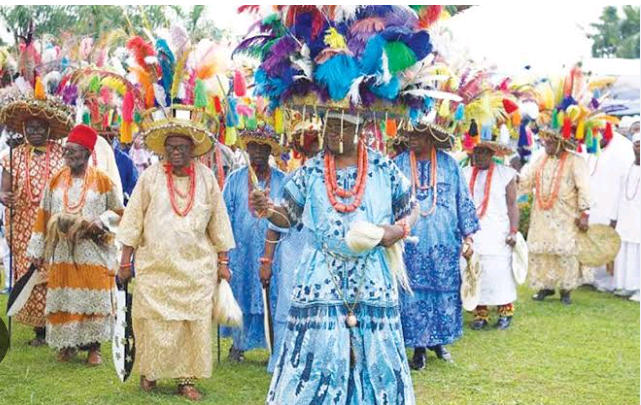

The Ofala festival is a 2-day ceremony that is held annually after a week-long retreat embarked on by the king, or Obi. When the Obi emerges from his retreat, he will say prayers and bless his people. Ofala festival is held in many Igbo towns of southeast Nigeria which include Nnewi, Onitsha, Umueri, Umuoji, and Aguleri. But the Ofala festival of Onitsha is probably the most prominent.
This customary rites of passage by the Obi were likely a takeaway from the Igue festival held by the Oba of Benin. The Onitsha people are reported to have migrated from the ancient Benin kingdom eastwards to the banks of River Niger, and they took this tradition along with them.
Osun-Osogbo Festival
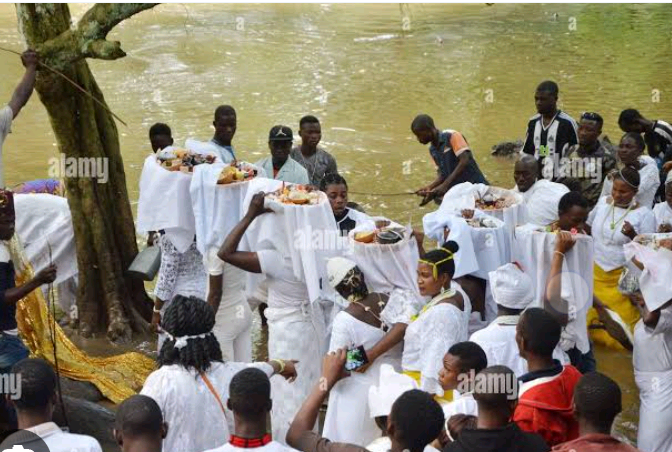

The Osun-Osogbo festival is a regular August event that began more than 700 years ago. It was the product of a supernatural intervention by the river goddess, Osun, who appeared to save certain migrants from famine. These migrants led by the hunter Olutimehin settled temporarily by the Osun river bank when the goddess appeared to them. In return for her assistance, an annual sacrifice is carried out at that spot till date. It has evolved into an international event that attracts touists from around the world.
The Osun-Osogbo grove built on the Osun river bank, is surrounded by a thick forest just outside Osogbo town in Osun state. In the 1950s the grove was largely abandoned; prohibited activities such as fishing and poaching also took place with reckless abandon. That went on until the Austrian woman Susanne Wenger came to rebuild the site, ably supported by the ruler of Osogbo (Ataoja). Wenger became the custodian of the sacred grove until her death in 2009.
Durbar Festival
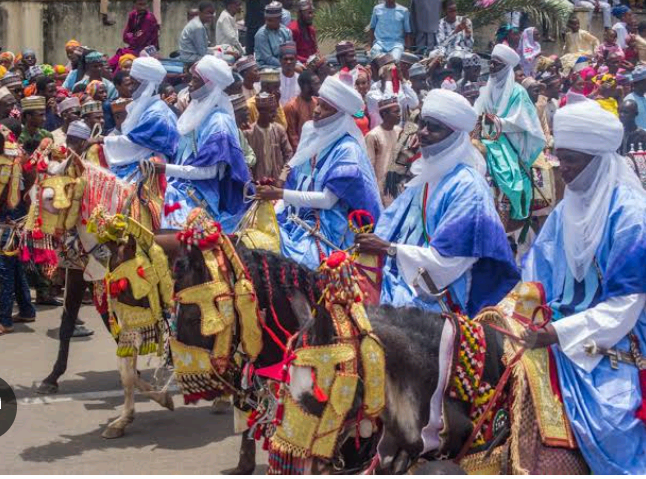

This huge annual festival is an event celebrated in each of the northern cities of Katsina, Sokoto, Zazzau, Kano, Bauchi, Bida, and Ilorin. It is a cultural and religious festival, with a prominent display of musicians, horsemen and artillery. This is characteristic of the ancient Hausa and Fulani kingdoms. The event is organized at the tail end of the Muslim Ramadan season, occurring at once with the celebration of Eid-el-Fitri. It is a 4-day event celebrated with opulence.
The Durbar was first celebrated in 14th-Century Kano and since then has taken root. Mounted horsemen who are nobles would go and declare their loyalty to the Emir. It is marked with street parades, music and other activities.
Idoma International Carnival
The Idoma International Carnival is celebrated annually in Oturkpo, Benue state every December. It was the initiative of a prominent Idoma native, Prince Edwin Ochai, who named it the Agila Social and Economic Carnival. It normally begins with a carnival procession from Oturkpo to Apa on December 23, This culminates in an evening bonfire celebration amd performances by musicians. By December 24, carnival and masquerade displays take place. Gifts are also shared to widows. By evening time, music and comedy performances will follow.
Finally on December 25, a beauty pageant takes place. The conclusion of the event leads the people back from Apa to Oturkpo.


